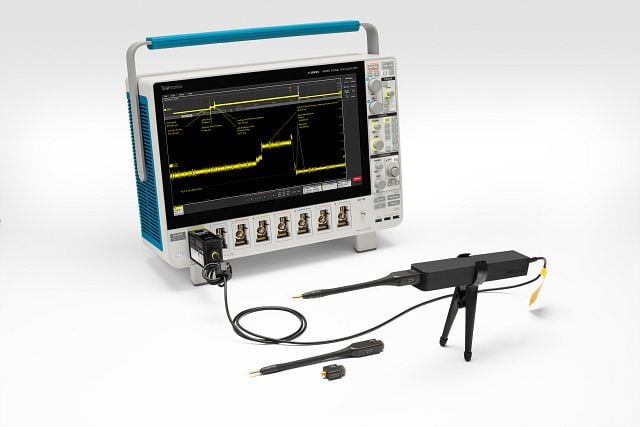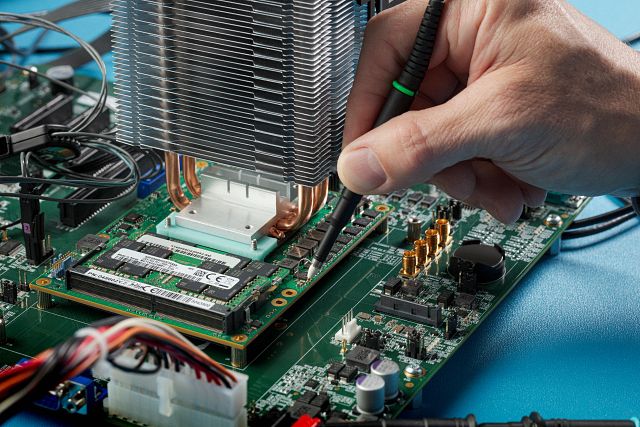Ensuring Precision: The Importance of Probe Calibration in Electronic Test and Measurement

In the fast-paced world of electronic test and measurement, accuracy and reliability are paramount. At Tektronix, we understand that the precision of your measurements can make or break the development, testing, and maintenance of electronic devices and systems. That's why we emphasize the critical role of probe calibration in ensuring high-quality, reliable electronic products.
Why Calibrate Probes?
-
Accuracy and Reliability
Calibration is essential to enhance both the accuracy and reliability of your measurements. Over time, probes can experience wear and tear, environmental impacts, or electrical stress, causing their performance to drift. Regular calibration, followed by adjusting the probe's output to match a known standard, reduces measurement errors and increases confidence in the data collected. This is crucial in applications where precision is critical, such as in the manufacturing of semiconductors, aerospace components, and automotive safety systems.
-
Compliance and Standards
Many industries are governed by strict regulatory standards that mandate a certain level of measurement accuracy and traceability. Calibration ensures that measurements are within the tolerances set by these standards, ensuring compliance and avoiding legal repercussions. Calibration certificates provide a traceable record of the probe’s performance against recognized standards.
-
Quality Control
Calibrated probes are instrumental in identifying deviations, defects, or non-conformities in products or processes at an early stage. This early detection enables timely corrections, significantly reducing the cost and resource expenditure associated with later-stage fixes or recalls. Ensuring the reliability of measurement tools through calibration directly contributes to maintaining high-quality standards and fostering customer trust.
-
Cost Efficiency
While the initial costs of calibration may seem unwelcome, the long-term benefits significantly outweigh these costs. Regular calibration can identify potential probe failures before they occur, allowing for preventative maintenance or replacements. This proactive approach avoids the higher costs associated with unexpected downtime, extensive repairs, or complete probe replacements.

The Calibration Process
The calibration process involves comparing the probe under test against a reference standard with known and traceable accuracy. This comparison is conducted under controlled environmental conditions to minimize external influences. Any discrepancies are noted, and adjustments are made to align the probe’s output with the standard. The process may also include assessing the probe's response time, linearity, and sensitivity to environmental changes. Upon completion, a detailed report or certificate is provided, documenting the calibration date, conditions, and results.
Conclusion
Regular calibration of probes is essential for ensuring the ongoing accuracy and reliability of measurements in electronic test and measurement. By prioritizing probe calibration, organizations can safeguard their operations against inaccuracies, maintain compliance with industry standards, enhance product quality, and optimize cost efficiency.
At Tektronix, we are committed to supporting your journey towards precision and reliability in every measurement. Learn more about Tektronix calibration services and how we can help calibrate your probe today.


